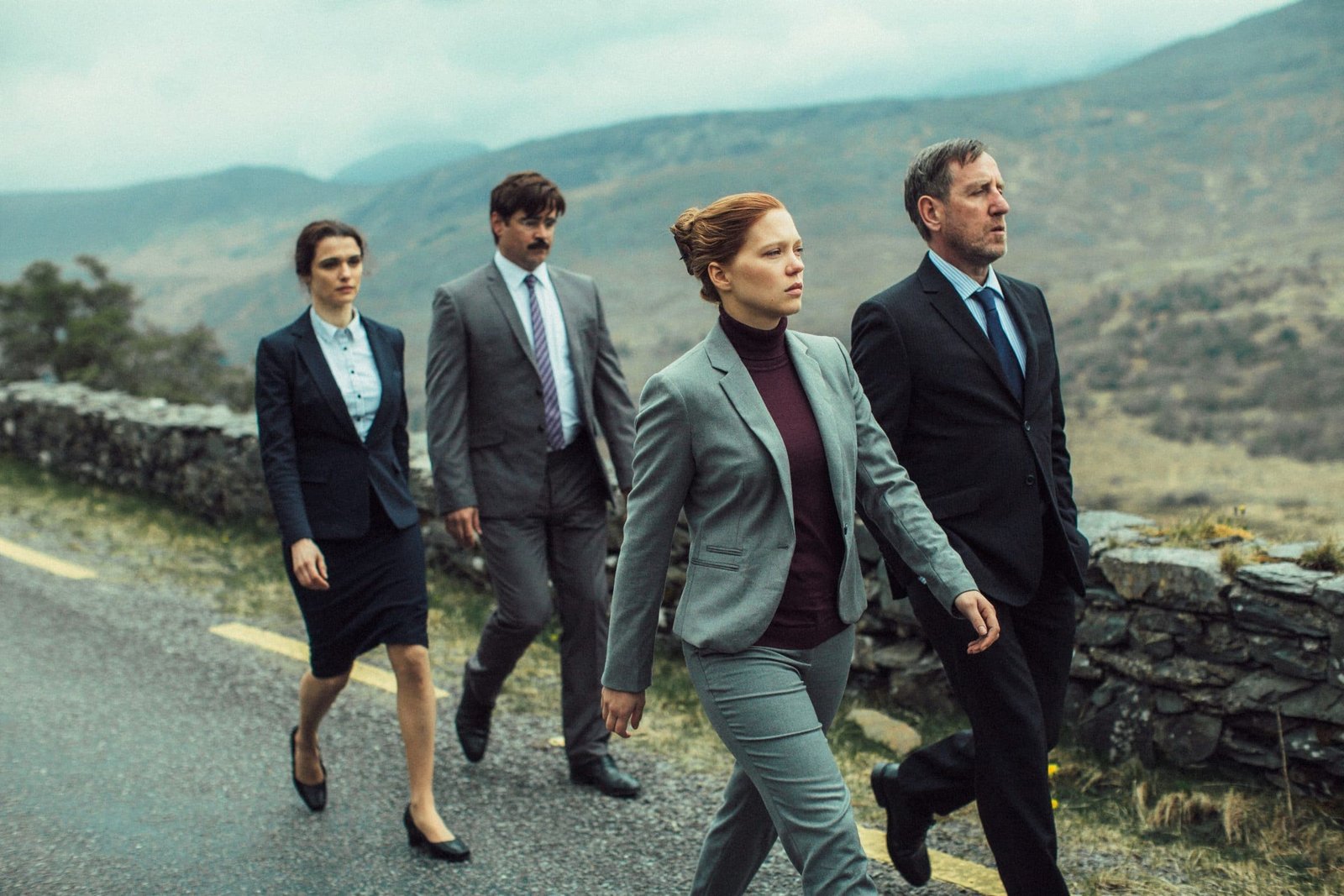Lanthimos wants to provoke us with an absurdist satire so rich in layers it will probably leave you thinking about it long after it is over
The Lobster (2015)
Directed by Yorgos Lanthimos. Written by Efthymis Filippou and Yorgos Lanthimos. Starring Colin Farrell, Rachel Weisz, Jessica Barden, Olivia Colman, Ashley Jensen, Ariane Labed, Angeliki Papoulia, John C. Reilly, Léa Seydoux, Michael Smiley and Ben Whishaw.
Modern Greek Cinema — or the “Greek Weird Wave” as termed by Steve Rose of The Guardian — comprises some of the most provocative films out there. Just take a look at works like Miss Violence (2013) or Yorgos Lanthimos’ Dogtooth (2009) and you will see that conventional is the last thing they are. The weirdness is unmistakable, much like their alienated protagonists and absurdist dialogue. Now, with his first English-spoken movie The Lobster, Lanthimos wants to provoke us again and force us to think in ways that defy common sense. What he accomplishes is something so rich in layers and meaning that it will probably leave you thinking about it for a long time after it is over. And that, as we know, is the best kind of artwork there is.
Written by Lanthimos together with Efthymis Filippou (who co-wrote Dogtooth and Alps), The Lobster opens with a glimpse of the oddness that is about to follow. A prologue scene shows a woman driving in the countryside. In the middle of a pasture, she stops, gets out of her car under heavy rain and shoots a donkey dead. That’s it; no explanation is given, but the implications are clear once we figure out what this is all about. The plot takes place in a dystopian future, when a man named David (Colin Farrell) is dumped by his wife and then taken to a hotel where singles must find a partner in 45 days. If they don’t, they will be transformed into animals and sent off into the woods. David’s choice in case he doesn’t fulfill his obligation…you can imagine.
Dominated by a large amount of visual and narrative elements, The Lobster devises a society that has gone too far in its obsession for love relationships and codependency. The hotel resembles a strange type of rehab resort full of bizarre rules. No smoking is allowed, there are no halves (for example, you cannot define yourself as bisexual) and you must call the reception one day before in order to have a haircut. Masturbation is strictly forbidden as well. Right after David arrives, his belt is locked and his right hand handcuffed to his back. But sexual stimulation by the hotel maid is mandatory, though. And while David is always referred to by his name, the rest of the eccentric residents are usually defined by their function or physical characteristics — a limp, a lisp or just a beautiful smile.
Narrated by the Short-Sighted Woman (Rachel Weisz), the plot becomes hilarious as it explores its absurdist details. People are like lifeless automatons; a young woman, for instance, acts completely indifferent to the fact that she is bleeding profusely from her nose and only cares about how to remove the blood stain from a shirt. Also funny is that the residents of the hotel can extend their deadlines by tranquilizing single people in the forest. Each captured “loner” earns them an extra day. This feels even weirder as it is all punctuated by an eerie score of violins, cellos and a recurring three-chord motif. And let’s not forget a surreal scene in slow motion that shows the brutality against the “loners” in the forest to the sound of a melancholy Greek song.
Colin Farrell, who gained forty pounds for his role, shines as usual in a cast full of talented actors. His performance is perfectly subdued, especially as we notice that David has feelings but must pretend he doesn’t among people who can reach disturbing levels of cruelty. It all comes down to a matter of emotional detachment, which has apparently become the norm in this depressing society of near-psychopaths who resemble children being prepared for a social obligation. Guests must attend dances like adolescents and watch propaganda glorifying partnership and the subjugation of women. When we see the Nosebleed Woman (Jessica Barden) say goodbye to her best friend before getting married, she does so by reading her a written letter. Her friend’s reaction is priceless.
The Lobster is obviously a satire of our own society. Everyone is obsessed with finding a partner who has any characteristic in common with them, be it of a physical nature or a medical condition. After couples get married, they must go through an adaptation phase. If they face conjugal problems, children are assigned to them. And what can be said about the hilarious scene that shows us a newly-formed family of three wearing striped black-and-white clothes like prison inmates? It is clear that Lanthimos wants to create another illustration of Plato’s Cave like Dogtooth. Both films have people enclosed within fences and with no real idea of how things are or could be outside. They must break out of their confinement to discover the world.
The search in this case is for love, true love. In The Lobster’s second half, David ends up in the forest and meets the Short-Sighted Woman. He also meets the Loner Leader (Léa Seydoux), an extremist on the opposite side of the political spectrum. It is fascinating to see how Lanthimos finds ways to criticize everyone, from stone-cold hypocrites doing everything to maintain their status quo to nihilistic revolutionaries who also have a personal agenda and a set of strict rules. Sex is not allowed among the rebels either, but the rules encompass love or any sort of physical contact, an evident refusal to abide by the hotel rules at all costs. Besides that, they must dig their own graves. “Memento mori,” they seem to say.
As David begins to fall in love (or believe that he is falling in love), Lanthimos’ thesis is fully shaped. No matter how pure or innocent his connection with the Short-Sighted Woman is (they become bound by music, rabbits and a sign language they invent), people will always look for things they have in common. This is, of course, a satirical exaggeration, but not that far from reality. Even in our world, it is very hard to find those who are truly open to accepting each other’s differences — and find love precisely in them.
Beautifully edited (especially in a masturbation scene that ends in torture) and filmed almost entirely using natural light (which helps make everything look colorless and bleak), The Lobster is wonderful food for thought like any good representative of the Greek Weird Wave. But above all, it is an intelligent and tragic philosophical essay that recognizes that even if you try to escape and remove yourself from the ugliness of society, society always finds you.



